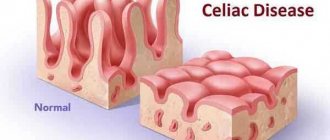With the modern pace of life, it is not always possible to eat properly and nutritiously. Therefore, many are deficient in important vitamins and minerals, including calcium. How to understand that the body lacks this element and why is such a deficiency dangerous? Nutritionist Anna Glumova
.
Helping the body: what foods are best to eat in winter
What role does calcium play in the body?
First of all, calcium is a building material for bone and dental tissue. It contains from 1 to 1.8 kg of calcium (depending on age and gender), and this is 99% of the total element contained in the body.
Children need calcium for the proper formation of the skeleton, normal growth and development of teeth. For adults – to maintain the density and strength of bone tissue, which is constantly subject to microtrauma and needs to be restored.
Photo: istockphoto.com
The remaining 1% of calcium is found in cells and intercellular fluid. Here it is:
- performs a metabolic function: supply of nutrients and cellular detox;
- transmits information between cells;
- responsible for muscle contractions, including heart rate;
- has anti-inflammatory and antiallergic effects.
Hypercalcemic crisis
A rare but dangerous complication is hypercalcemic crisis. In an acute condition, the patient’s entire nervous system is disrupted and blood clotting accelerates. Increased blood density implies increased risks for the patient’s life, as this can lead to the formation of blood clots or complete cardiac arrest.
Hypercalcemic crisis has symptoms:
- maintaining temperature above 40°C;
- internal bleeding;
- signs of fever;
- severe itching of the skin.
Disturbances of the central nervous system lead to the occurrence of psychosis, and subsequently shock. The patient's condition leads to the fact that he does not understand what is happening. If medical assistance is not provided in a timely manner, respiratory paralysis begins, followed by cardiac arrest and death.
Can you get calcium only from foods?
If there are enough food sources of calcium in the diet, the gastrointestinal tract is functioning well, there is no vitamin D deficiency and there is no excess of coffee and alcohol, then there is no need to take additional calcium.
Photo: istockphoto.com
The most calcium is found in hard, aged cheese. Also rich in calcium:
Fermented milk products without added sugar:
natural cottage cheese, yogurt, kefir with a short shelf life in glass or paper packaging, as well as goat and sheep milk products.
Egg yolk. Seeds:
sesame, poppy, flax, hemp, amaranth, chia, mustard.
Nuts:
almonds, brazil, walnuts, hazelnuts, pistachios.
They need to be soaked and washed: this way we neutralize phytic acid, which interferes with the absorption of calcium and other vitamins and minerals. Fish and seafood:
sardines, crabs, shrimp, shellfish.
Vegetables:
all types of cabbage, onions, olives, greens, except sorrel and spinach.
Legumes:
soybeans (including edamame beans), beans, etc.
What will happen to the body if you eat dairy products every day?
Causes of hypocalcemia
Endocrine organs are sensitive to effects on them, so calcium metabolism can be disrupted for various reasons.
A decrease in plasma Ca may occur for the following reasons:
- neck trauma with bleeding;
- complication after surgery on the thyroid gland;
- inflammatory processes;
- ionizing radiation;
- metastasis in endocrine organs;
- adrenal insufficiency;
- autoimmune diseases;
- systemic diseases.
Identifying the causes is considered the basis of treatment, since if the influence of negative factors continues, therapy will not be effective.
How to understand that the body does not have enough calcium?
Today, 40-60% of the population is calcium deficient, notes the nutritionist. It is often caused by a carbohydrate type of diet (porridge, flour and sweets instead of meat, fish, cottage cheese), an abundance of trans fats (margarine, mainly in industrial confectionery and flour products), taking hormonal contraceptives, as well as chlorination of water.
Photo: istockphoto.com
At the same time, taking a blood calcium test is pointless: if there is a deficiency, it is washed out of the bone tissue to maintain its normal level in the blood. To diagnose hypocalcemia, the level of parathyroid hormone in the blood is checked.
The first symptoms of a lack of this element:
- fatigue;
- general weakness;
- drowsiness even with sufficient sleep;
- fast fatiguability;
- decreased immunity;
- tendency to bleed, for example from the nose or bleeding gums;
- causeless appearance of bruises.
If measures are not taken at this stage, you may then notice brittle hair, deterioration in the quality of nails, tooth enamel will become more fragile, and caries will appear.
Chronic fatigue: how to get rid of a syndrome that prevents you from living fully
4.Treatment
The most effective and natural way to restore the optimally required calcium concentration is a fortified diet. It should, however, be understood that any diets, like all other treatment regimens, activities, procedures, can be developed and prescribed exclusively by a doctor.
The same applies to special calcium-containing supplements and drugs intended for the treatment of the most severe cases of calcium deficiency: such drugs can only be used as prescribed by a doctor.
What are the consequences of calcium deficiency?
As calcium is washed out of bone tissue into the blood, the tendency to fractures, dislocations, and subluxations increases. Young people periodically experience joint pain characteristic of osteoporosis, while older people experience fractures of the vertebral bodies or the neck of the femur.
Photo: istockphoto.com
If calcium deficiency has already been diagnosed, it is better to take a course of supplements. The best absorbable form is calcium citrate. It is taken in a dosage of 800-1200 mg per day (pregnant women and elderly people 1500 mg) on an empty stomach. Calcium is better absorbed when reacting with acid, for example, taken simultaneously with vitamin C or lemon juice). Vitamin D, adequate animal protein intake and a healthy gastrointestinal tract are also essential.
Consult your physician before taking supplements.
3. Symptoms and diagnosis
Classic symptoms of calcium deficiency include asthenia, frequent and painful muscle spasms (cramps), especially in the extremities, bone pain, caries, disorders of the immune and hematopoietic systems (in particular, a tendency to bleed due to insufficient clotting). In more severe and advanced cases, deformation of various structures of the musculoskeletal system, osteoporosis (thinning and fragility of bone tissue) and, as a consequence, frequent fractures are observed; urolithiasis, tooth decay, diseases of the gastrointestinal tract, liver, kidneys; hypothyroidism, tetanic (muscular-spastic) attacks, tremor, multiple sclerosis.
It is obvious that calcium deficiency is very dangerous in childhood, when the skeleton and other key systems of the body are being formed. Often such insufficiency is revealed during examination of patients with rickets; Often, children with calcium deficiency develop abnormalities in the structure of the lens of the eye, serious psychoneurological disorders, convulsive syndromes, flat feet, etc. Reduced blood clotting in childhood makes any scratch dangerous, and in some cases causes fatal bleeding.
Calcium deficiency is preliminarily diagnosed based on the results of examination, history taking and study of the clinical picture. The diagnosis is confirmed by laboratory tests.
About our clinic Chistye Prudy metro station Medintercom page!
How to determine if you have hyperkalemia?
The main store of calcium in our body is bones. If there is a deficiency of this element in our food, the body first painlessly borrows from there. A long-term lack of dietary calcium can lead to osteoporosis. According to statistics, we consume an average of 400 mg of calcium with food, although physiological needs reach 1200 mg per day. Symptoms of calcium deficiency in the body:
- development of osteoporosis, frequent fractures;
- decreased growth over time;
- deterioration of teeth;
- brittle nails;
- loss of sensitivity in the hands and feet;
- periodic seizures;
- painful menstruation;
- increased nervousness, irritability, anxiety;
- sleep disturbance;
- increased fatigue, decreased mood;
- decreased mental activity;
- allergic manifestations, eczema;
- cardiopalmus;
- frequent colds, exacerbations of chronic diseases;
- Gastroesophageal reflux often develops.
Due to the high needs of the body, it is necessary to include calcium-rich foods in the diet every day. Almost half of the calcium comes to us through dairy products. Most of it comes from cheese, milk and yogurt. It is quite problematic to satisfy the need with the help of other products, so it is often recommended to enrich the diet with dietary supplements and calcium supplements.
Shortage for pregnant women
The pregnancy period is a crucial one for a woman.
At this moment, the mother’s body gives all the nutrients to the developing fetus for the normal formation of the most important systems and organs of the future human being. Therefore, hypocalcemia is a normal situation for pregnant women. Most often, the main signs of the presence of pathology are:
- Goose bumps on the skin.
- Preeclampsia.
- Occasional convulsions.
- There is aching in the bones, especially in the lower extremities.
An increased lack of nutrients leads to the formation of serious pathologies. These consequences include:
- Swelling of the lower extremities.
- Dental diseases.
- Dry skin.
- Long and severe toxicosis.
- Loss of large amounts of hair.
- Brittleness of the nail plates.
- Unreasonable irritability and insomnia.
Calcium deficiency in most cases occurs in the last stages of gestation. Due to lack of treatment, children born with this pathology are often susceptible to rickets.
Every pregnant woman should not only take urine and blood tests, but also monitor her own health. If such signs are detected, you should contact your gynecologist for additional treatment.
How much does an adult and child's body need?
Height affects the amount of calcium the body needs. Thus, elderly people who have crossed the 55-60 year mark require an order of magnitude higher than teenagers or young children.
But it is not enough to simply take medications that contain this vitamin. For its better absorption by the body, it is required that it be supplied simultaneously with phosphorus.
The following dosages are distinguished, which are optimally suitable for certain age categories as consumption per day, mg:









